Surfboard Construction Types
What is the difference between surfboard blank types?
There are plenty of different Surfboard Construction Types available to you when placing a surfboard order, but how can you tell the difference between them? Especially, when it comes to choosing the best surfboard for beginners, you'll find a wide variety of surfboard blank types, each with its unique characteristics. Understanding these differences is crucial to ensure your board performs exactly as you want, and we've compiled a list of these blank types available through our different manufacturers at Boardcave.
Check out our US shapers to find which manufacturers use different blank types during their surfboard construction process and use the patented Board Engine to find the right surfboard for you today.PU (Fiberglass)
Polyurethane (PU) foam is more dense than Expanded Polystyrene (EPS), providing a smoother ride with additional flex.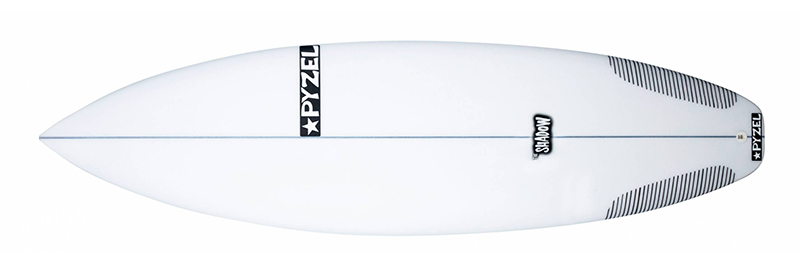
The Pyzel - Shadow in standard PU Construction.
PE (Epoxy)
Polyurethane Foam with Epoxy Resin is an upgraded version of your traditional PU board with a high grade wooden stringer and laminated using fiberglass cloth and an exclusive epoxy resin. It is proven to be 5 times stronger with a lively flex pattern, also helping reduce yellowing over time. Please Note, Epoxy surfboards can take up to 4 weeks longer to manufacture. View our range of Epoxy Surfboards.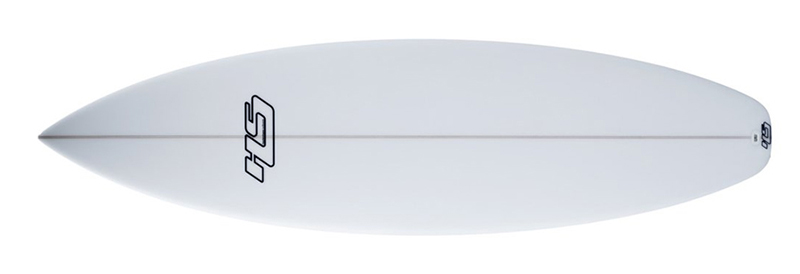
The Haydenshapes - Darkside in PE Construction.
EPS (Epoxy)
EPS foam is lighter and more durable then traditional PU. Epoxy resin is stronger and less prone to dings and pressure dents. Please Note, Epoxy surfboards can take up to 4 weeks longer to manufacture.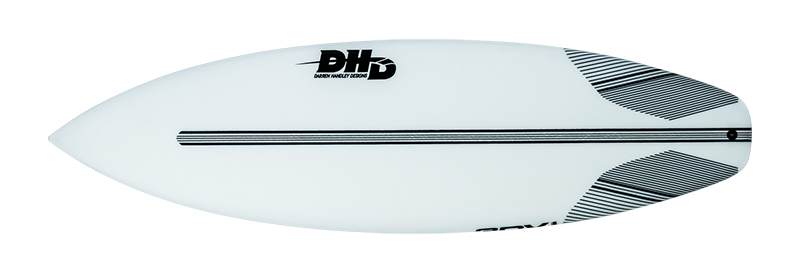
The DHD - 3DV in Epoxy Construction.
EPS (Epoxy) & Carbon Wrap
The Carbon Wrap focuses on the flex pattern of a surfboard, allowing for additional stiffness through the nose of the board. However, with the carbon spaced out between the feet, it gives the tail extra spring with quick response and more force.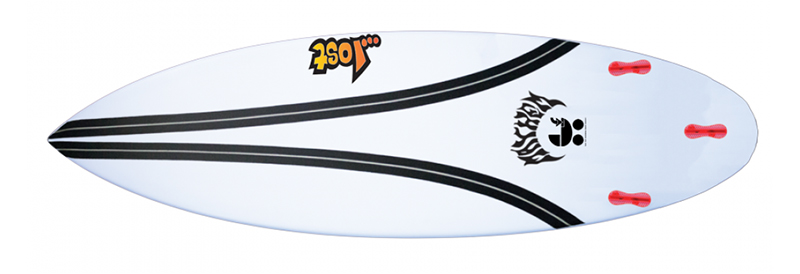
The Lost Surfboards Baby Buggy in Epoxy Carbon Wrap Construction.
FutureFlex
FutureFlex is a parabolic carbon fiber frame, that is constructed within the board. Designed to maximize speed and drive, whilst maintaining a flex pattern for smooth release and flow. The structural design of the frame minimises twisting of the board, which results in a board that is less likely to snap and crease. Please note, Futureflex does take longer to manufacture.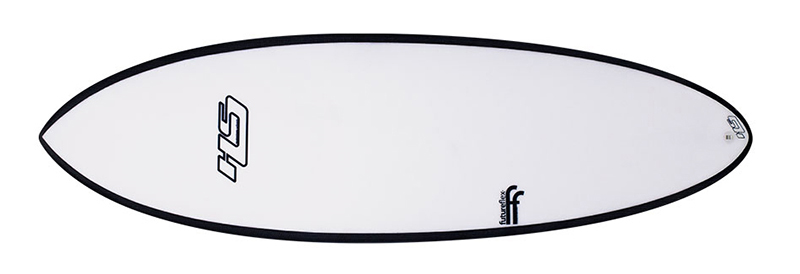
The Haydenshapes - Hypto Krypto in Future Flex Construction.
Varial Foam
Varial Foam allows you to eliminate a stringer or any sort of reinforcement other than glassing as standard. This unique foam has a constant density throughout and can be made using either Polyester or Epoxy resins. It is lightweight and due to the rigidity and spring back of the foam naturally, gives you flex properties like you have never felt before.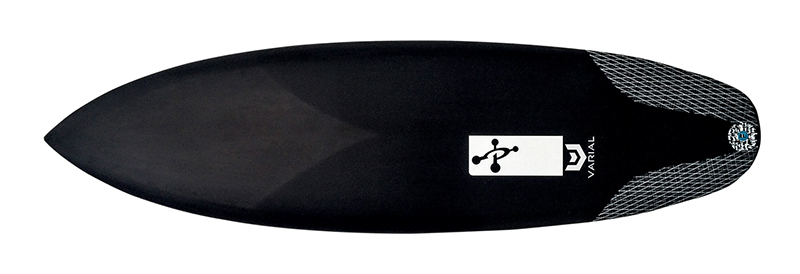
The Chemistry Surfboards - Beaker in Future Varial Foam Construction with a black tint.
201 EPS Epoxy
201 standard EPS epoxy technology consists of a lightweight EPS blank with a timber stringer, epoxy resin and a slight blue tint, keeping the board whiter for longer. Please Note, Epoxy surfboards can take up to 4 weeks longer to manufacture.SUPERflex
The SUPERflex technology has no stringer with a carbon fiber net across the bottom of the board and carbon fiber rails for a lightweight lively feely. SUPERflex has a unique flex pattern that offers quick release for high performance surfing.201 Tri-Flex
201 Tri-Flex consists of carbon fiber rods inlayed along the EPS foam deck, acting as the boards stringer, providing strength, while carbon rods inlaid around the foams bottom rails allow for twist and flex.PU & Carbon Strip
As mentioned before, PU foam is more dense then EPS, providing a smoother ride with additional flex. This construction options also includes a carbon strip on the bottom stringer of the board for additional strength.PU & Carbon Tail
This lightweight PU blank is more dense then EPS, providing a smoother ride with additional flex. This construction option also includes carbon tail reinforcement for additional strength.Magic Fiber
Magic Fiber is exclusive to Eye Symmetry Surfboards and uses a stringerless EPS construction with an aramid fabric wrapping across the deck and over the rails and two carbon strips on the bottom for added strength and less pressure dints. Magic Fiber boards are very light and strong.Epoxicore
A new construction method offered by DHD Surfboards, Epoxicore combines both Polyurethane and EPS foam for a more lively board through the center and out the tail, yet with the weight and flex properties needed through the rails and at the nose of the board.BioFlax
An environmentally friendly construction from Gary McNeill Concepts, BioFlax surfboards are extremely light and durable. These high performance surfboards use recycled materials, making BioFlax surfboards the choice for the environmentally conscious.Still have questions?
If you didn't get the answer you're looking for, review our related article on PU or EPS, Which is best? or ask an expert:Click Here To Ask An Expert
Popular Surfboards
Shop All
© Copyright 2010 - 2024 - Boardcave USA ~ The Surfers Store. Aspects of this portal are patented, patent-pending, or patent-applied-for. - Powered by Cavewire: 






